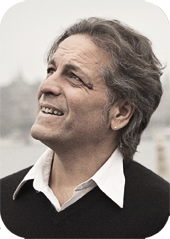Naresh Giangrande discusses permaculture and transition
 Arboretum Marbella, the award-winning permaculture project in Andalucia Spain, is holding a Permaculture Design Course from 9th to 22nd of October and co-founder of Transition Town Totnes Naresh Giangrande has been confirmed as one of the trainers. He will be part of a multidisciplinary team of professionals and international educators with years of practical experience. They will teach exactly what permaculture is and how to apply it personally and professionally during this comprehensive 112 hour course, certified by the British Permaculture Association.
Arboretum Marbella, the award-winning permaculture project in Andalucia Spain, is holding a Permaculture Design Course from 9th to 22nd of October and co-founder of Transition Town Totnes Naresh Giangrande has been confirmed as one of the trainers. He will be part of a multidisciplinary team of professionals and international educators with years of practical experience. They will teach exactly what permaculture is and how to apply it personally and professionally during this comprehensive 112 hour course, certified by the British Permaculture Association.
Naresh has been at the heart of the training and development for the roll out of the Transition Town project and has trained hundreds of participants in 11 countries. He will be delivering a module on Prepared Communities and a Sustainable Future via Transition, approaching the module as if students are creating an applied permaculture design for redesigning civilization. Using basic permaculture principles and learning the fundamental Transition Town concepts, students will get an understanding of what applied social permaculture can look like.
Here he explains what permaculture means to him and how the transition movement and permaculture are linked.
How did you get into permaculture?
I have lived and worked in a permaculture community for many years.
How do you incorporate it into your daily life?
I live permaculture every day in Totnes, as Transition Towns are sometimes described as applied social permaculture. We are designing, within a worldwide experiment, a multi-locational self organising system, and finding real time, real world solutions to the most acute problems of our times. How do we go about moving from an unsustainable industrial growth society to a peaceful resilient culture? We design it, then begin to build it, tweak, learn modify, evaluate and then build again. This is permaculture design in practice.
I also grow my food for which I use permaculture principles. We have no dig raised beds which supplies much of our fruit and vegetables. We also have a forest garden producing other fruit and veg.
What permaculture ´jobs´ do you enjoy doing most?
Whenever we are approaching the big picture problems in Transition Network, I turn to permaculture to start to design the solutions. Solutions have to be self organising for instance. To give an example; How to enable learning across a network? I would be looking to principles like obtain a yield, being open to feedback, value diversity, look to the edge and many others.
Why would you recommend that somebody studies permaculture?
As we wind down from the fossil fuel era, businesses, enterprises, and ways of living will have to accord with the principle of life on earth, in other words permaculture. A permaculture training will set you up to be successful in life whatever you choose to do as this is how we are going to have to live. It’s as simple as that.
During your course, what do you think will be the key things to learn and the most useful for the students?
How to apply permaculture to any situation to find solutions, it’s much more than a way to grow stuff
In just three words, what does this PDC course offer its participants.
International, Innovative, Surprising
Permaculture Design Course, Arboretum Marbella 9-22 October – This internationally recognized training course features highly qualified educators delivering excellent and inspirational content in English in the stunning surroundings of Marbella. This year, the course is focussed on environmental activism, social economy, community projects, urban permaculture, food sovereignty, developing resilience on a local level, Transition Towns, strategies for forming positive alliances and networks. This is a PDC perfectly suited to the needs of modern society and our changing times.
Book your place online http://arboretumpdc.org/en/index.html


